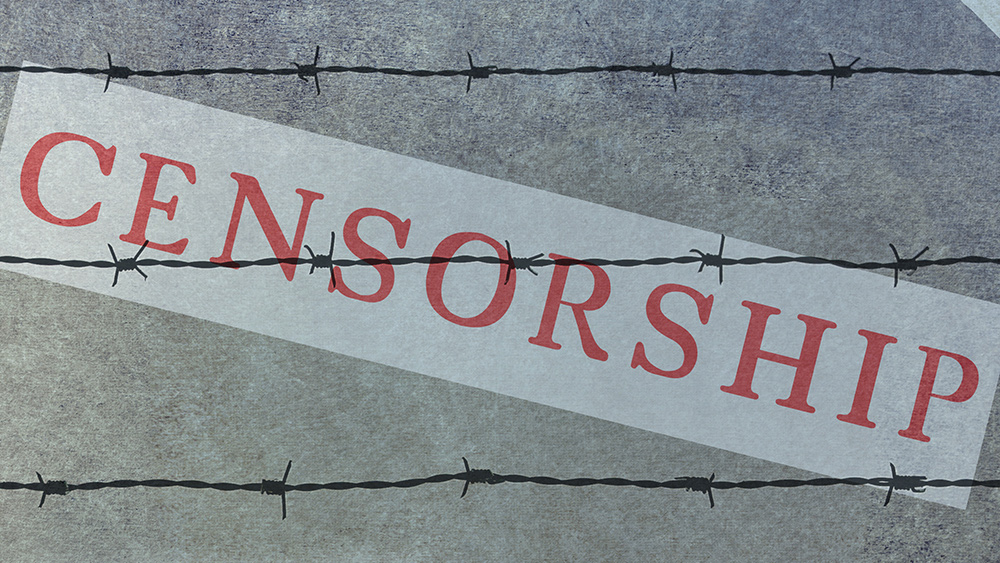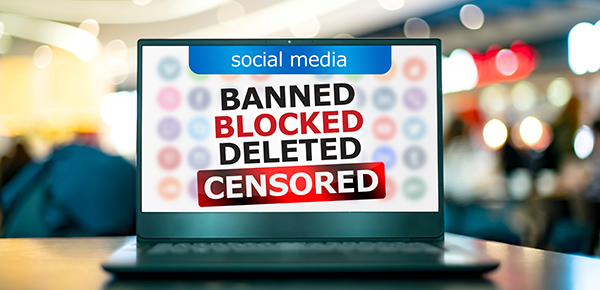
New York City (NYC) has banned the Chinese video app TikTok on government devices over security concerns.
Breitbart reported that the Big Apple "has taken a decisive step" in the debate surrounding the app. This step came in the form of a directive issued by the city that mandated all NYC agencies to remove TikTok from city-owned devices within the next 30 days. The decision followed a review by the NYC Cyber Command, which deemed TikTok a security threat to the Big Apple's technical networks.
"NYC Cyber Command regularly explores and advances proactive measures to keep New Yorkers' data safe," a City Hall spokesperson said in a statement. "While social media is great at connecting New Yorkers with one another and the city, we have to ensure we are always using these platforms in a secure manner." (Related: Taiwan bans TikTok from government devices, mulls nationwide prohibition.)
Back in 2020, a ban on TikTok was quietly implemented at the state level via an internal policy – with employees being prohibited from using and downloading it on government-owned devices. However, exceptions were made for a few public relations (PR) platforms that use the app for marketing and promotional purposes.
Scott Reif, a spokesman for the New York State Office of Information Technology Services, confirmed both the state-level prohibition and the exceptions for PR platforms to the Times Union. The exceptions were made as the PR firms running these platforms use TikTok "to communicate with New Yorkers."
"We seek to meet people where they are, and remain vigilant in protecting critical state assets," he stressed. "[We also] urge New Yorkers to use caution when using TikTok and all social media platforms to protect their privacy and security.
The Big Apple's ban on TikTok follows guidelines from the Office of Management and Budget, which discourages the use of the app on government devices. It also follows federal legislation banning TikTok from government devices, which was passed earlier in 2023.
Other states have also banned TikTok
The security concerns surrounding TikTok have been a topic of discussion for several years. Congress has been attempting to push through legislation banning TikTok nationwide for more than three years. They allege that its owner ByteDance can use the data it collects to spy on Americans at the behest of the Chinese Communist Party (CCP).
Meanwhile, other U.S. states have taken action and banned TikTok from government-owned devices. South Dakota was one of those, by means of an executive order (EO) signed by Gov. Kristi Noem. The EO, which took effect immediately after signing, prohibited state employees and contractors from accessing the app via state-owned devices.
Alabama also followed suit, with Gov. Kay Ivey announcing a directive to ban the app. Her mandate prohibited TikTok on state-owned devices and urged the state's executive branch to prevent the app from accessing state data. According to Ivey, "[the] use of TikTok involving state IT infrastructure thus creates an unacceptable vulnerability to Chinese infiltration operations."
Utah joined in on the ban wave, with Gov. Spencer Cox announcing a similar prohibition against TikTok. Under his edict, state employees may not download or use the TikTok app, or visit any TikTok website, on any state-owned devices. The prohibition applies to all executive branch agencies in the Beehive State.
Aside from these three, Texas and Maryland also implemented similar bans on TikTok from public sector devices over the same concerns. Meanwhile, TikTok spokesman Jamal Brown decried the states' actions against the app.
"We're disappointed that so many states are jumping on the bandwagon to enact policies based on unfounded, politically charged falsehoods about TikTok," he said.
Visit BigTech.news for more stories about TikTok.
Watch this NBC News report about TikTok being banned on all mobile devices issued by the House of Representatives.
This video is from the In Search Of Truth channel on Brighteon.com.
More related stories:
US lawmakers unveil bipartisan bill to ban TikTok.
UT Austin bans TikTok on campus, citing security concerns.
Alabama, Utah ban TikTok on state-owned devices over security concerns.
Sources include:
Please contact us for more information.



















